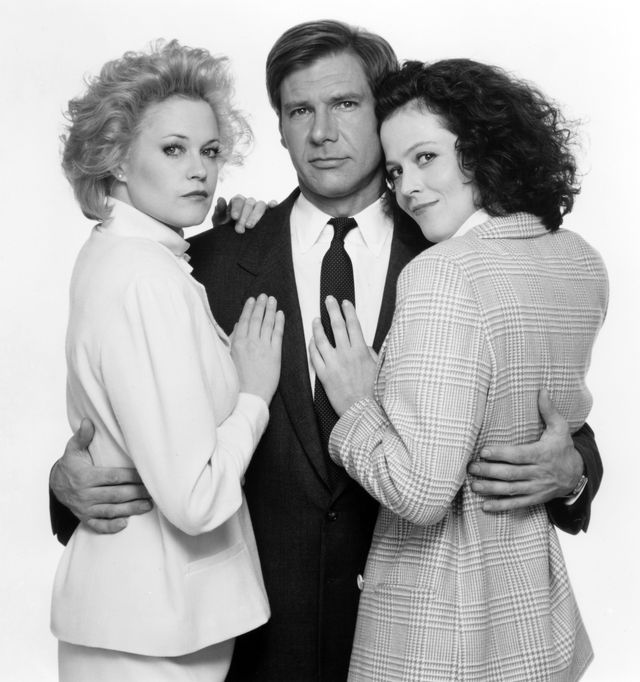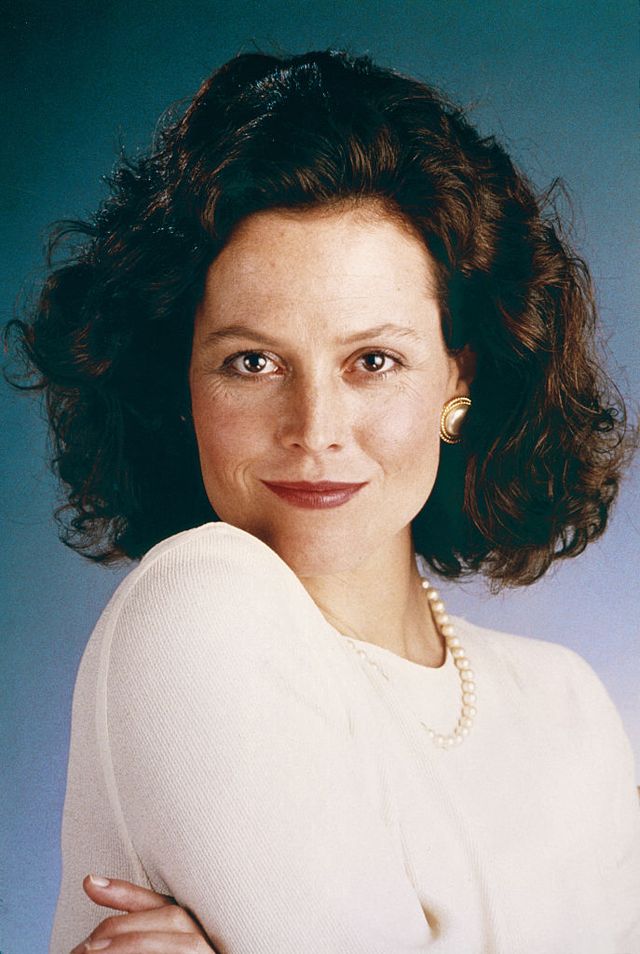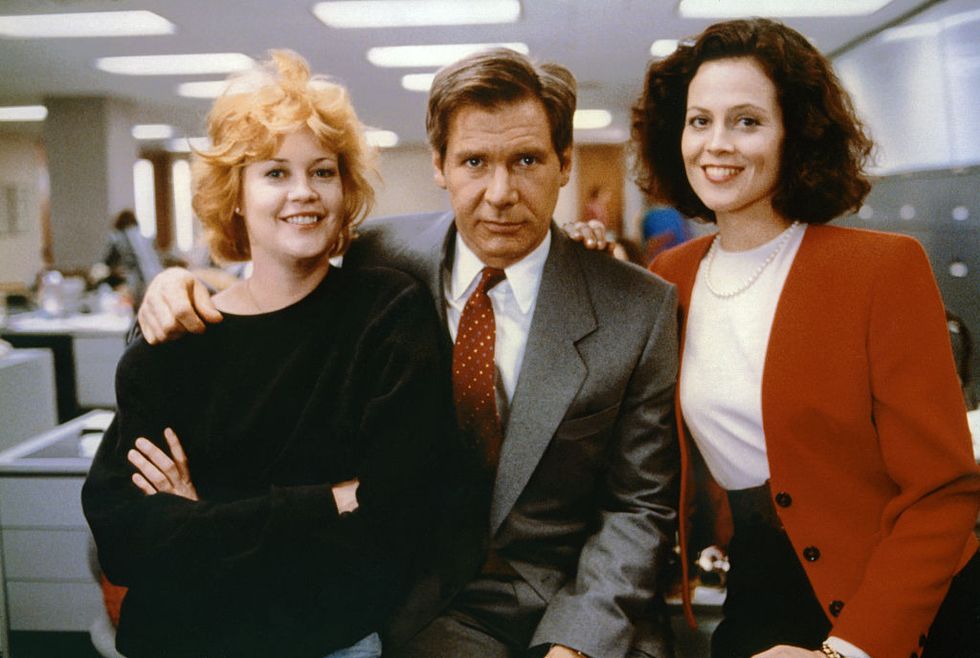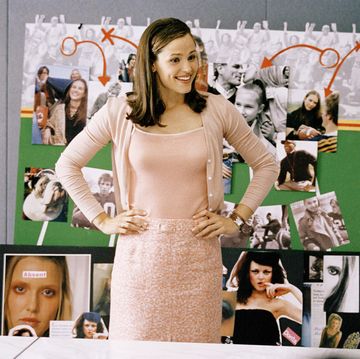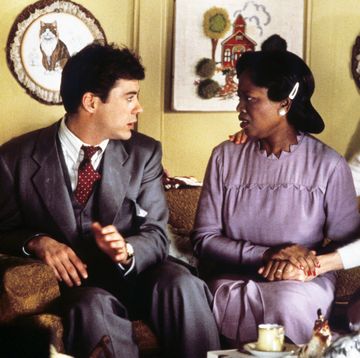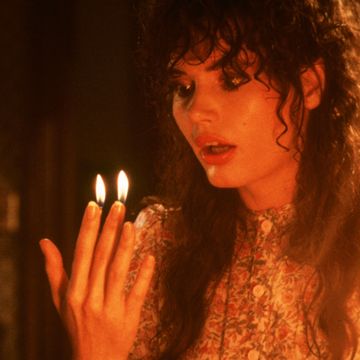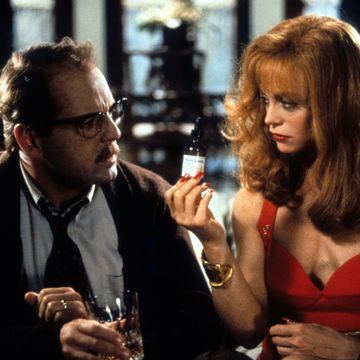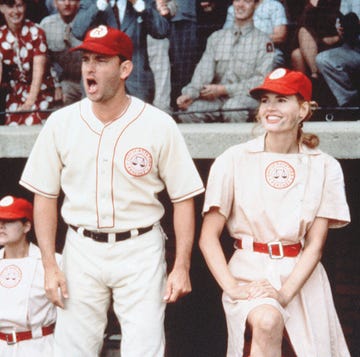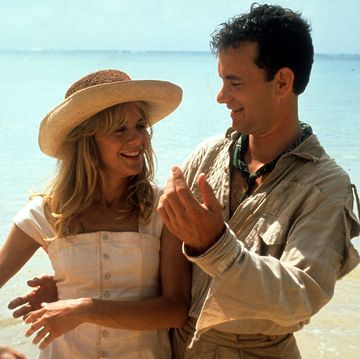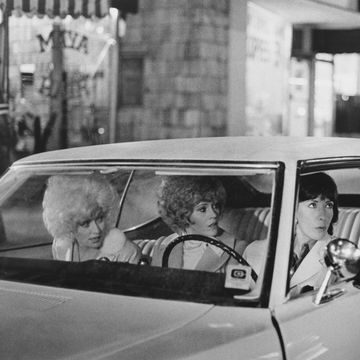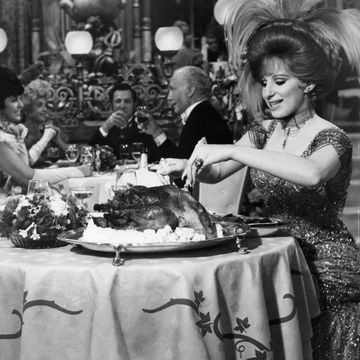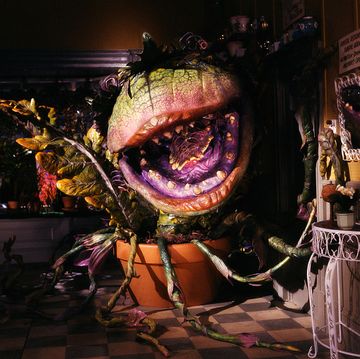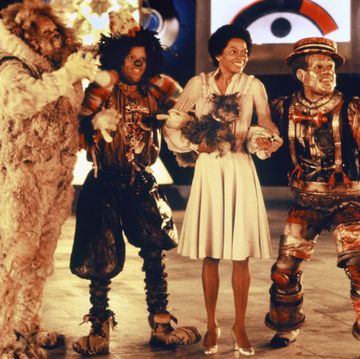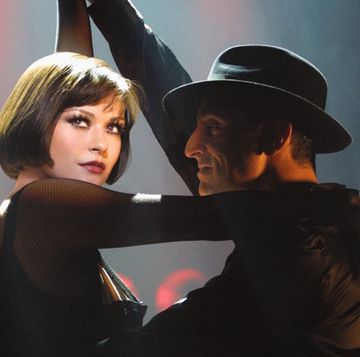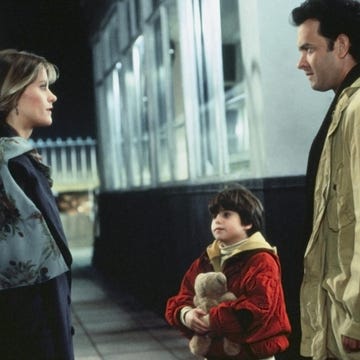Consider, if you will, the vastly different isolations of Franklin J. Hart (Dabney Coleman), 9 to 5's sexist, egotistical, lying, hypocritical bigot, and Katherine Parker (Sigourney Weaver), Working Girl's villainous boss (who does not get a string of rhyming descriptors, alas). Both steal the work of their respective underlings—Lily Tomlin's Violet in 9 to 5 and Melanie Griffith's Tess in Working Girl—and then find themselves sequestered against their will, giving the movie's main characters a chance to shine professionally. Hart is basically kidnapped in his own home and chained to a garage door opener (as I mentioned when previously writing about 9 to 5, it really hits different when you spell it out like that). Meanwhile, Katherine takes herself on a luxurious ski trip but breaks her leg and is forced into an extended stay at a European hospital.
Where Hart gets a foretaste of his comeuppance early in the film, reduced to smoking cigars and watching soap operas to stave off boredom, Katherine's break becomes a glamorous staycation. When she phones Tess, her secretary, late in the film to let her know she's returning to America, Katherine's hospital room is livelier than DJ Nice's Club Quarantine. There's music in the background, a host of guests, and even a pedicurist. It's deranged and it's all I've ever wanted. Katherine Parker may be a duplicitous intellectual property thief but…well, she sure knows how to make the most of isolation. Plus, she dresses to the nines and she's played by the Sigourney Weaver. I have decided to stan, with reservation.
Working Girl, Mike Nichols' 1988 rom-com about an aspiring businesswoman, is a sort of spiritual sequel to 9 to 5. Both films feature underestimated leads who take advantage of their boss's absence to pursue bold new ideas. Both treat business in general as a worthy endeavor populated by people acting in bad faith and desperately in need of creative thinking. And most crucially, both begin with a montage of commuters set to an iconic song. In the case of Working Girl, it's Carly Simon's "Let the River Run" which is less of a literal how-to for labor than Dolly Parton's "9 to 5" and more an anthem about inviting your dreams into being. The scope of Working Girl, which was released in 1988, expands upon 1980's 9 to 5 in a similar fashion. The older film, more of a straightforward comedy, is focused on highlighting gender disparity in the workplace. The addition of Katherine, a socialite, a snob, a villain, and also a woman, opens up different possibilities for Working Girl.
While Tess still encounters sexism, class prejudice plays a role in keeping her from her dreams. When we first meet her, she's taking nightly business and speech classes to rid herself of the trappings of her working-class Staten Island home. She is constantly negotiating with the need to change herself to be deemed worthy. Katherine, with her chic suits, fashionable hair cut, and Swiss hospital party, is initially a stark affirmation of all of Tess' self-doubts.
It's a brilliant bit of storytelling, then, that Tess discovers Katherine is not all she's cracked up to be while Tess is in Katherine's house, literally trying on her boss's life. From Europe, Katherine's tasked Tess with running errands at her home. Frank Hart in 9 to 5 makes similar requests of his secretary. Rewatching these films back-to-back, I couldn't help but wonder: What was going on with bosses in the 1980s? When Katherine gets back to America, Tess has to meet her on a helipad, take Katherine's luggage back to her house, then pick up her pills from the pharmacy while Katherine lounges in her lingerie. Is that what people thought jobs were? I have a couple of notes.
It seems these bad bosses have confused secretaries with personal assistants. But what do I know? I live in the future and I have to get my own pills from the pharmacy. Even though Katherine is my life-in-isolation icon, I realize now that I have sequestered myself lacking one crucial element: help. This is for the best, obviously, as social distancing doesn't have loopholes. Katherine makes it all look so effortless—the fashion, the huge spotless home, the convalescent celebrations. But she's able to have the life she has because there's really capable people around her. To wit, the only person you see vacuuming Katherine's home is Tess! Somebody call OSHA.
Katherine's willingness to freely use Tess turns out to be her biggest flaw. She's so entitled, she assumes she can steal Tess's ideas with no recourse. But what she doesn't get is that it's not just Tess's ideas that are valuable—it's Tess's understanding of how to use her ideas to serve a larger purpose. It's fascinating that in both 9 to 5 and Working Girl, movies about business and capitalism, the heroine's commitment to serving a greater good is what wins the day. Tess and Violet and Doralee and Judy all seem to know that we're better people because of the people around us. To wit, Tess, brilliant and head-strong, is constantly cheered on by her best friend Cynthia (a perfect Joan Cusack) who at one point generously offers Harrison Ford's character, "coffee, tea... me?" Get yourself a friend who will support you by throwing themselves at a handsome stockbroker.
Isolation seems to have the same confusing effect as starting a rat-race gig with no support but the sounds of Carly Simon summoning the universe's blessing to keep you going. But the benefit of our contemporary moment is that the better people around us don't always have to be physically around us. Indeed, they shouldn't be. Go home, Cynthia. Nowadays, we can throw ourselves at our friends' handsome stockbroker colleagues right on Twitter; we can throw Zoom parties in our convalescence; we can sew masks and mail them to hospitals. We can all still win together…apart (for now).
